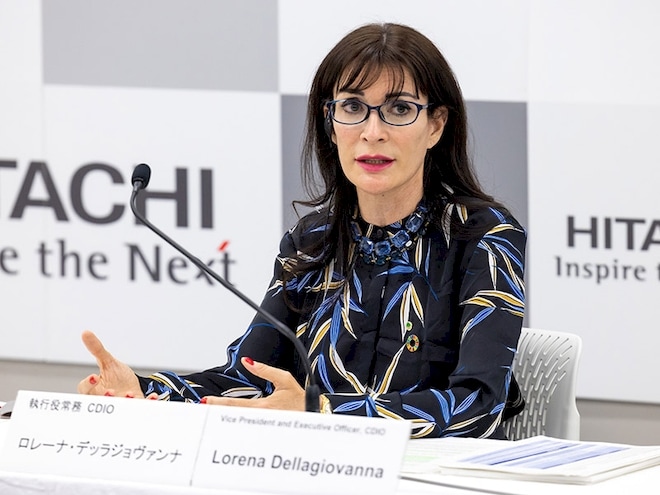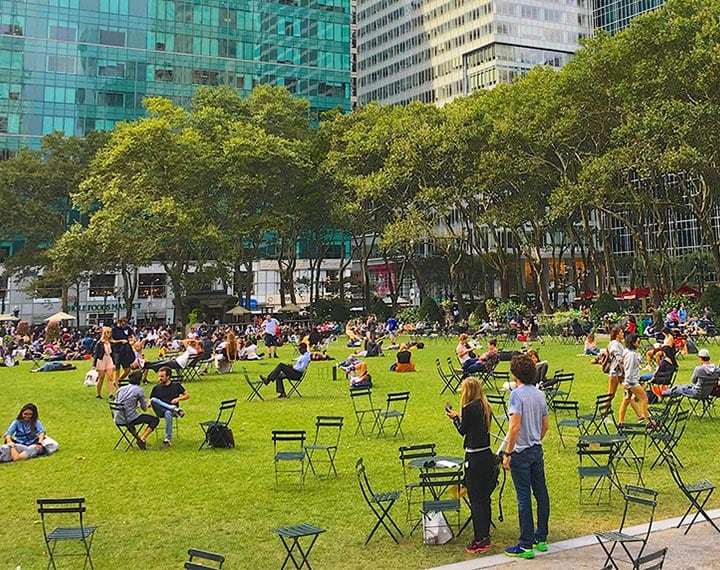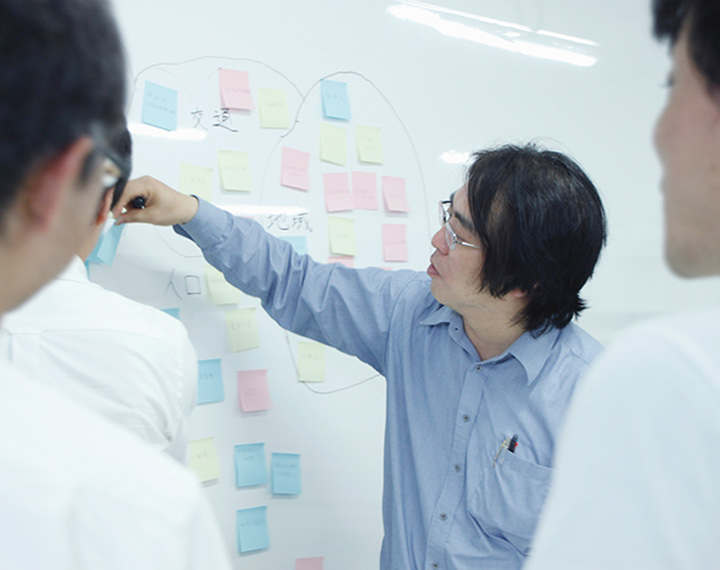Kashimura joined Hitachi, Ltd. in 1990 and was assigned to the Design Center. Engaged in research on improving product and service usability and experience through user research. After serving as general manager of the Design Division and as general manager of the Global Center for Social Innovation – Tokyo, in 2018 served as a director for Hitachi Appliances, Inc. (currently Hitachi Global Life Solutions, Inc.), and assumed her current position in April 2020.
A Society Where People Discover New Happiness as They Age: Hitachi's Vision for an Aging Society
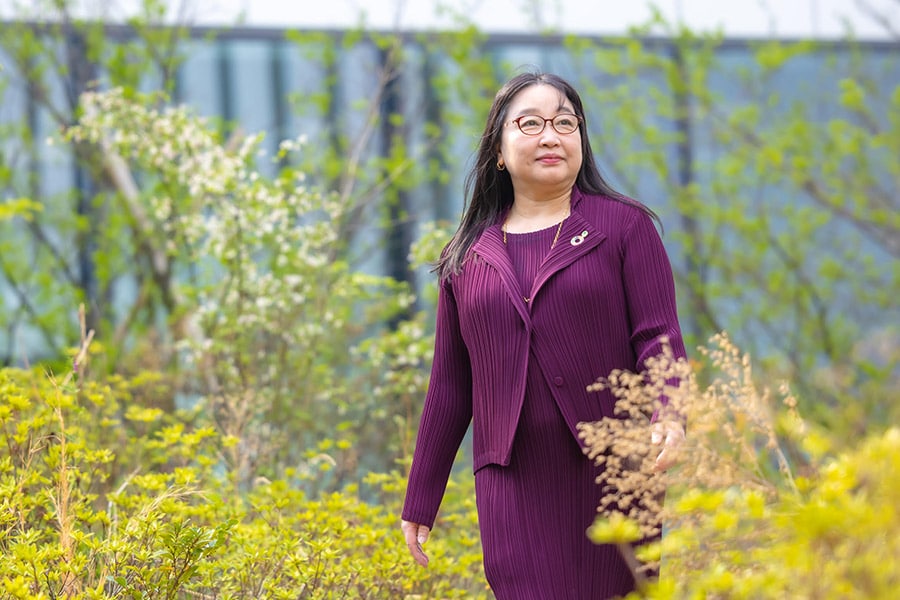
In April 2020, Hitachi, Ltd. initiated its Aging Society Project, which aspires to find solutions to the challenges of society that is aging. Since then, a year has passed, and having pursued a number of verification experiments with local governments and research labs, Hitachi is poised to start providing a variety of services in FY2022. Against this backdrop, we talked with Kaori Kashimura, who is a project leader at Hitachi's Future Investment Division, about the project's goals and its significance.
The particular significance of action in an advanced nation that is aging
--What kind of society can an aging society become as envisioned by Hitachi?
Kaori Kashimura: The aging society that Hitachi envisions is a society where people in this era of the 100-year lifespan can discover new happiness as they age.
The society of present-day Japan exhibits the greatest degree of aging in the world. According to statistics presented last year by Japan’s Ministry of Internal Affairs and Communications, the total population of Japan decreased by 290,000 over the previous year, while the number of seniors 65 and older increased by 300,000. The ministry also projects that the percentage of seniors in the total population will reach 30% by 2025.
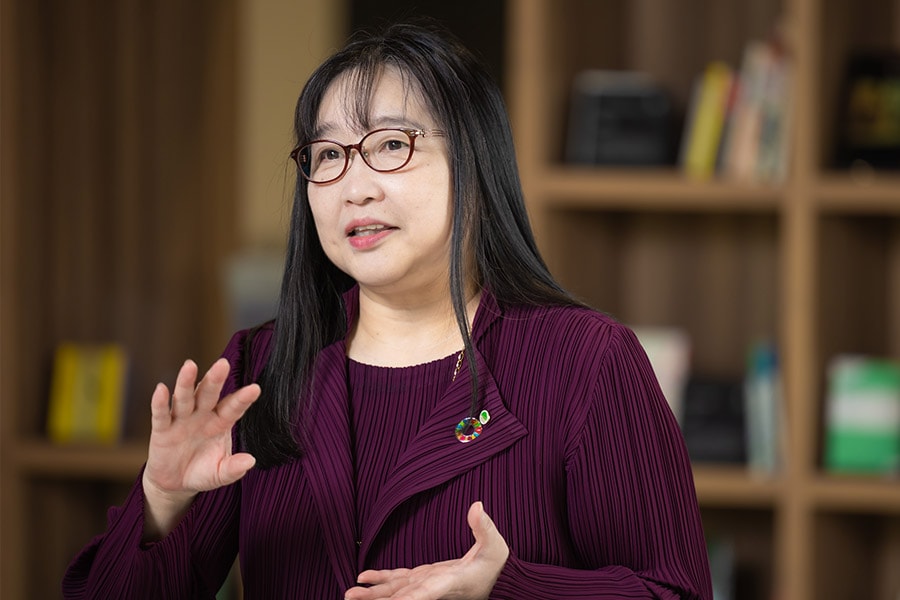
The concern is that the rapid decrease in the birthrate and the increase in the aging population will blunt economic growth, leading to the collapse of medical, care, and other social welfare programs. Although the societies of Europe, the United States, and China are also aging, Japan ranks highest among advanced nations. This gives considerable significance to Japan leading the world in tackling this challenge and finding paths to solutions. This is also part of the backdrop behind Hitachi starting its Aging Society Project last year.
In the project's name, the use of the word “Aging” was expressed in the present progressive tense based on our view that this is not a problem limited to seniors. All of us in society get older each year. In 10 years, I too will be a senior. I think that we should create a society in which everyone, including those in their 30s and 40s, can have positive feelings about getting older.
--What points does Hitachi believe are important toward realizing the goals of the Aging Society Project?
Kashimura: There are three. The first is creating a society in which aging is thought of as something to be happy about. The second is IT, a Hitachi strength. The third is for Hitachi to cooperate with multiple partners instead of just working on its own.
In particular, we expect that the Hitachi’s strength of IT will be able to create various types of "value" that will make an aging society easy to live in. For example, analyzing the health and lifestyle data of individuals will enable people to get medical care and services tailored to them.
In addition, instead of going it alone, forming alliances with Hitachi corporate customers and startups will be important toward providing services that comprehensively encompass the lives of seniors. Hitachi has knowledge that it obtained by developing businesses, projects, and operations through creative collaboration with customers in various fields—experience that it should be able to leverage.
Participation in society by seniors: Reducing "Long-Term Care Needed"
--What kinds of specific projects are you considering?
Kashimura: First of all, we are considering how to support the participation of seniors in society. According to a study by Katsunori Kondo, who is a professor at Chiba University's Center for Preventative Medical Sciences, seniors that gathered and participated on a daily basis in a salon in which social activities were carried out had half the "Long-Term Care Needed" certification percentage over five years than seniors that did not participate.
This demonstrates that social participation is extremely effective in preventing "Long-Term Care Needed". I believe that we can contribute significantly to the physical and mental health of seniors by supporting the creation of opportunities for friends to gather and discuss plans for events, functions, and other fun activities in the future.
--You have already conducted verification tests, haven't you?
Kashimura: We have implemented an initiative that uses smartphones to support the health and well-being of seniors. We are implementing this project by linking up local governments, senior communities, the Japan Agency for Gerontological Evaluation Study, and Hitachi. For the test, we installed an app in the smartphones of seniors 65 and over that measures number of steps walked, walking speed, number of destinations, and other such activities and asked the seniors to just go about their lives normally.
This initiative encourages modification to behavior that increases societal participation by gathering and analyzing these activity records and effectively feeding them back. Instead of simply encouraging people to walk, the app proposes going out with a purpose, thereby creating opportunities to improve health and to interact with people. This initiative aims to improve the quality of life of participants while increasing their social connectivity.
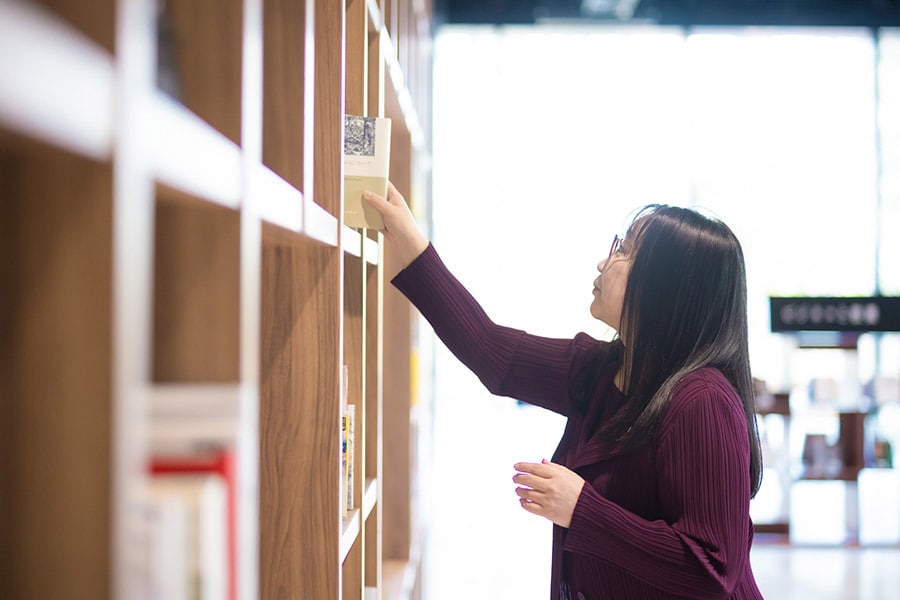
Using AI to assist people in connecting and discovering a place where they belong
--What other fields are you considering services for?
Kashimura: We are not limiting ourselves and are considering all fields. The reason why Hitachi headquarters is deploying this project is because we want to use the resources that we possess in a way that crosses over many fields. For example, if we collaborate with departments that deal with financial services and with banks, we can provide services for considering asset formation and building one's life plan and for preparing for this. Teaming up with real estate businesses will allow us to devise services for living environments and smart cities tailored to needs that change as we age.
We are also considering employment assistance services, aimed at those in their late 40s and 50s (known as "pre-seniors"), toward creating fulfilling second careers after retirement. The rationale for this is that working after retirement enables people to connect with society while earning income and living each day in a fulfilling way. I believe that there are any number of areas to which the Aging Society Project can be applied.
--How are you considering using Hitachi's Lumada, a product that accelerates digital transformation (DX) using digital technologies such as IoT and AI, with the Aging Society Project?
Kashimura: The daily activity logs of individuals can be used to put them in a position to enjoy the "value" that is unique to them. For example, using AI to analyze behavioral logs will make it possible to create a system that recommends activities, opportunities, and salon services in which the individual might possibly have a potential interest. Individuals will be able to enjoy life to the fullest within the range of activity that they are capable of, even as they lose strength with age. We hope to be able to use AI to support helping find such opportunities.
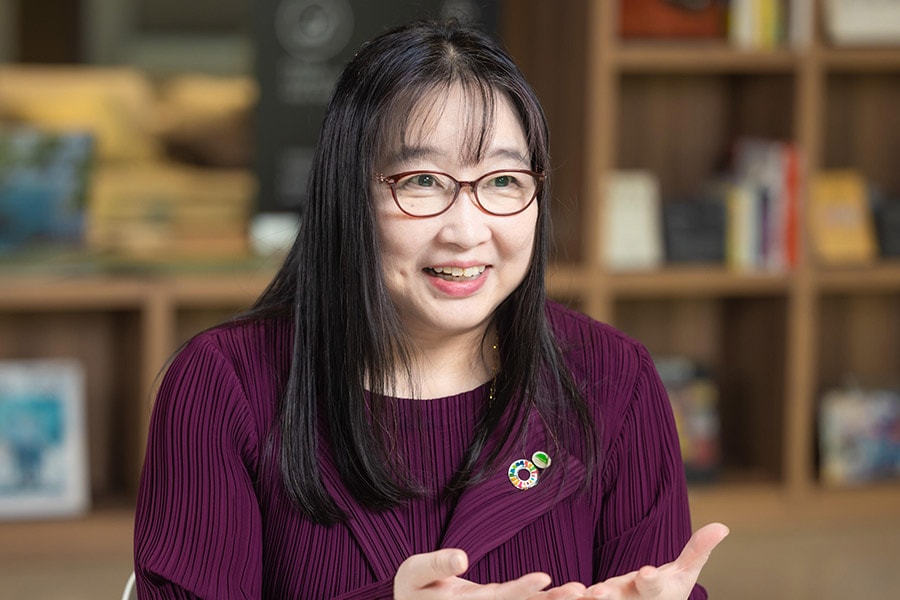
--We have heard that you are also considering, through the Aging Society Project, a project closely connected to creating new places of belonging for seniors.
Kashimura: Creating community is a very important theme for seniors. Because the current proportion of senior women that are homemakers is high, there are many cases in which community networks are already in place. In contrast, there are more than a few cases of men that have worked all their lives at a company organization suddenly losing all personal relationships upon retirement. Worries about the difficulty in finding a new place of belonging is a problem that many senior men have in common. We envision a system that, through the use of AI, lets seniors naturally find matches in the community with new places to belong to and new social relations that are suited to one's own hobbies and lifestyle, trying them all out at their own pace.
Aging is often compared with going down a long hill. As our strength, vision, and memory decline, the number of things we cannot do increases. That certainly does not mean that we get enjoyment out of simply looking at your feet and being careful not to fall. As we enter the era of the 100-year lifespan, even as we enter our 70s or 80s, as we look to the future and search for what we can do, there should be no end to the possibilities. It is my hope that we can create a society where seniors can gently navigate their way down that hill while keeping their gaze up.
Both young people and seniors find happiness and joy in life by connecting with people, sharing ideas, and doing fun activities together. I want to create a society, an aging society, where people can experience happiness regardless of how old they get.
Kaori Kashimura
Hitachi, Ltd. Corporate Officer, Project Leader of the Future Investment Division's Aging Society Project, Chief Engineer of the Research & Development Group
Hitachi, Ltd.

